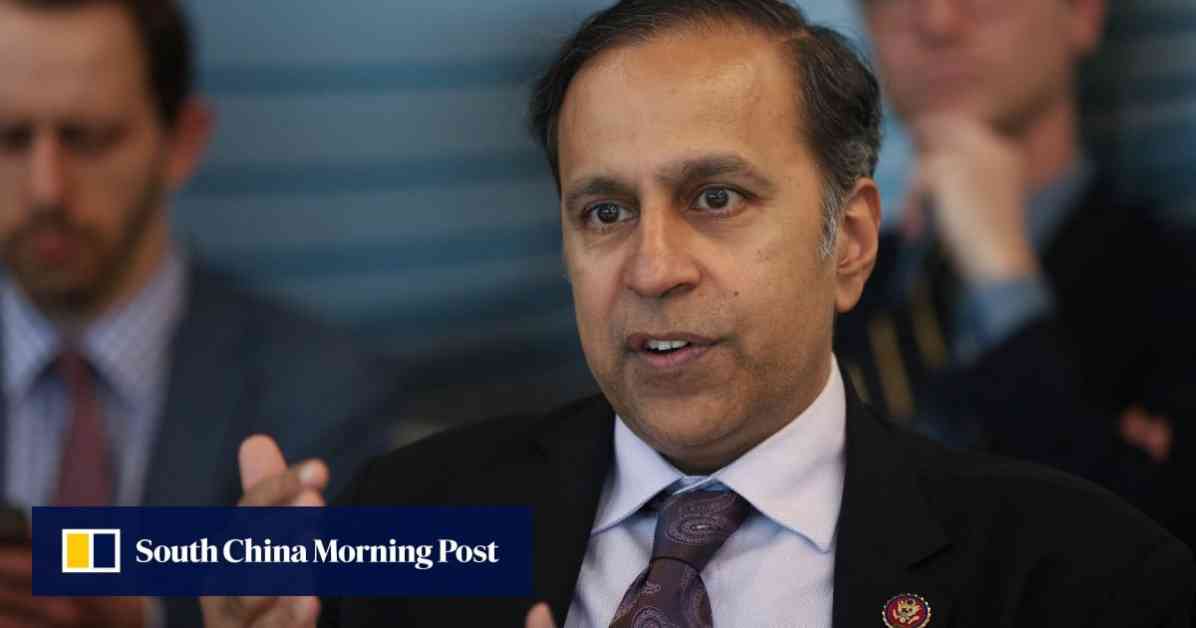In a recent event at the Washington-based Brookings Institution, Raja Krishnamoorthi, a prominent Illinois Democrat and ranking member of the House Select Committee on the Chinese Communist Party, made a surprising revelation about President Donald Trump’s stance on Chinese investment in the United States. Despite signing a memo just last week that seemed to signal otherwise, Krishnamoorthi suggested that Trump might be open to accepting significant Chinese investment in America for specific purposes.
Krishnamoorthi, known for his expertise in tech policy, expressed his nuanced view on the matter, stating that he was not entirely opposed to the idea of Chinese-controlled companies investing in the US. He emphasized the importance of being aware of potential national security implications while remaining open to discussions regarding inbound Chinese investment. This unexpected perspective from Krishnamoorthi sheds light on the complex relationship between the US and China in the current political landscape.
Uncertainty in Trump’s Stance
The comments made by Krishnamoorthi during his appearance alongside committee chair John Moolenaar underscore the uncertainty surrounding the Trump administration’s approach to China. The administration’s reported interest in negotiating a new trade deal with China has sparked speculation about the possibility of Chinese investment in the US being part of the discussion.
Krishnamoorthi’s suggestion that licensing Chinese technology could potentially help the US catch up and surpass China in technological advancement reflects a pragmatic view of the situation. This strategic approach to leveraging Chinese resources for American technological development highlights the complexity of the economic and political dynamics at play between the two global powers.
Balancing Economic Opportunities with National Security Concerns
As the US navigates its relationship with China, balancing economic opportunities with national security concerns remains a key challenge. The potential benefits of Chinese investment in American industries must be weighed against the risks of compromising sensitive technologies and strategic assets.
Krishnamoorthi’s cautious optimism regarding Chinese investment underscores the need for a thoughtful and strategic approach to engaging with China. By acknowledging the potential advantages of collaborating with Chinese companies while also recognizing the importance of safeguarding national security interests, policymakers can work towards a balanced and mutually beneficial relationship with China.
In conclusion, Krishnamoorthi’s recent remarks have brought attention to the nuanced and evolving nature of US-China relations under the Trump administration. As the two countries continue to navigate complex economic and geopolitical challenges, finding a delicate balance between economic cooperation and national security interests will be essential for shaping the future of US-China relations.



























